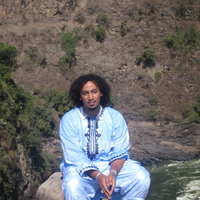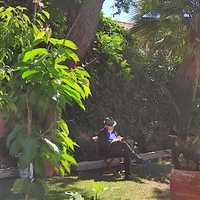Papers by Jayne O. Ifekwunigwe

American Journal of Physical Anthropology, Nov 22, 2016
Controversies over race conceptualizations have been ongoing for centuries and have been shaped, ... more Controversies over race conceptualizations have been ongoing for centuries and have been shaped, in part, by anthropologists. Objective: To assess anthropologists' views on race, genetics, and ancestry. Methods: In 2012 a broad national survey of anthropologists examined prevailing views on race, ancestry, and genetics. Results: Results demonstrate consensus that there are no human biological races and recognition that race exists as lived social experiences that can have important effects on health. Discussion: Racial privilege affects anthropologists' views on race, underscoring the importance that anthropologists be vigilant of biases in the profession and practice. Anthropologists must mitigate racial biases in society wherever they might be lurking and quash any sociopolitical attempts to normalize or promote racist rhetoric, sentiment, and behavior.
When the American golfer Tiger Woods proclaimed himself a "Caublinasian", affirming his... more When the American golfer Tiger Woods proclaimed himself a "Caublinasian", affirming his mixed Caucasian, Black, Native American and Asian ancestry, a storm of controversy was created. This book is about people faced by the strain of belonging and not belonging within the narrow confines of the terms 'Black' or 'White'. This is a unique and radical study. It interweaves the stories of six women of mixed African/African Caribbean and white European heritage with an analysis of the concepts of hybridity and mixed race identity.

Contested Belonging: Spaces, Practices, Biographies
Abstract Purpose – Based on auto/biographical and ethnographic narratives and conceptual theories... more Abstract Purpose – Based on auto/biographical and ethnographic narratives and conceptual theories, this chapter explores the Global African Diaspora as a racialized space of belonging for African diasporas in the United States, the United Kingdom and – more recently – the clandestine migration zones from Africa to southern Europe Methodology/Approach – Both auto/biographical as well as conceptual theoretical approaches are used to illustrate the author’s roots, routes and detours interpretive paradigm highlighting the interconnectedness across time and space of differential African diasporas. This methodology also illuminates shifting conceptions of blackness as forms of transnational kinship and solidarity. Findings – This analysis reveals the messiness of complex racialized conceptualizations of belonging in the specific diasporic spaces of England, the United States and the clandestine migration zones of southern Europe. At the same time, the chapter highlights transnational modalities of black and Global African Diasporic kinship, consciousness and solidarity engendered by shared lived experiences of institutionalized racism, structural inequalities and violence. Originality/Value – Using the author’s interpretive framework entitled roots/routes/detours, this chapter moves away from prior theoretical simplifications of the Global African Diaspora towards an engagement with its conceptual complexities. In particular, this chapter critically explores social, political and historical formations of African diasporas in the United States, the United Kingdom and the more recent clandestine migration zones between continental Africa and southern Europe as their formulations collide with shifting conceptions of blackness as forms of transnational kinship and solidarity.

The interpretive turn in urban studies signals a heightened emphasis on the locus of the city as ... more The interpretive turn in urban studies signals a heightened emphasis on the locus of the city as the site for both the making and unmaking of identities and differences. Juxtaposing examples from British popular culture with narrative extracts from my published ethnographic research on 'mixed race' family and memory, this article addresses two key problematics associated with this dis- cursive shift. First, I explore the concept of multiethnicity as another paradigm for understanding the relationship between structures and forms of agency, particularly as multiethnicity forces a rethinking of racialized and essentialist notions of English- ness and non-Englishness; what I refer to as differentiating between the hyphen and the ampersand. Second, I assess the extent to which lived and constructed ideas of 'the urban' in general and 'the city' in particular are preconditions for the perform- ance of multiethnicity. That is, are urban sites ideal laboratories for...
Routledge Handbook of Tennis, 2019
The Palgrave Handbook of Feminism and Sport, Leisure and Physical Education, 2017
In this chapter, I celebrate the contributions to tennis of Althea Gibson in the 1950s and Serena... more In this chapter, I celebrate the contributions to tennis of Althea Gibson in the 1950s and Serena William in the twenty-first century, and situate black female excellence in sport in its appropriate social, historical and political contexts. I also reframe critical black feminist discourses on sport by positioning their analyses along both the cross-generational and historical continuum of collective third-wave feminism and individual 'Care Free Black Girl' feminism. My dialogical approach seeks to highlight the changing same dynamics of intersecting forms of oppression as they simultaneously interact with embodied forms of agency, resistance and resilience.
Ethnicity, Gender and Social Change, 1999
Sharon is a woman in her thirties who grew up in racial isolation in care in the north of England... more Sharon is a woman in her thirties who grew up in racial isolation in care in the north of England without either her White English mother or her Black Ghanaian father. In an English society which codes its citizens on the basis of their colour, Sharon must reconcile the psychic split between a genealogical sense of herself which is Ghanaian and English and a racialized self which is Black and White. As her statement reveals, the psychological struggle begins when she realizes that bi-racialized1 English society dictates that she embrace her Blackness and deny her Whiteness.

Women's Studies International Forum, 2004
This article explores the ways in which transnational feminist analysis can be deployed to reconf... more This article explores the ways in which transnational feminist analysis can be deployed to reconfigure new gendered and racialized cartographies of the African Diaspora in Europe. First, I position contemporary film representations of trafficked Nigerian sex workers in Italy in dialogical relation to 19th century discourses of black sexuality-in particular, Sharpley-Whiting's (1999) reinscribed dBlack Venus Master NarrativeT-and assess historical and geographical (dis)continuities in their modes of signification. Second, by linking endemic factors feeding the supply of Nigerian women for the purposes of (in)voluntary participation in the Italian sex industry, such as the localized feminization of poverty and regionally specific perceptions of sex work as a temporary economic strategy, I engage with broader feminist debates on victimization and agency in global sex work and migration literatures. In doing so, this dialectical think piece highlights the gendered complexities of new African diasporic formations and the ways in which their growth is facilitated by broader illegal networks that shape and are shaped by vicissitudes in glocalized economies.
The African Diaspora and the Disciplines, 2010
... as the empire within. 51 as an aside, it is worth noting that there have always been inter-... more ... as the empire within. 51 as an aside, it is worth noting that there have always been inter-diasporic and extracolonial migrations of peoples of african descent such as african americans in Paris or african students in the United states, such as Kwame nkrumah and nnamdi ...
African and Black Diaspora: An International Journal, 2013
This article explores the political, economic, racialized, and moral dimensions of clandestine bo... more This article explores the political, economic, racialized, and moral dimensions of clandestine boat migration from Senegal to the Canary Islands between 2006 and 2011. I begin with a critical interpretation of clandestine boat migrations as a form of gendered protest and as a strategic response to the perceived lack of economic opportunities for young Senegalese men. I continue with a critique of the overlapping and racialized geographies of the Canary Islands, which simultaneously represent a holiday respite for tourists and the promise of a new life for economic migrants. I conclude with a discussion of the utility of scholarship, such as this, which complicates the tidiness of area studies, illuminates the lived complexities of transnational studies, and paves the way for a more global African Diaspora Studies.
African Diaspora, 2019
Based on auto/biographical and ethnographic narratives and conceptual theories, this essay explor... more Based on auto/biographical and ethnographic narratives and conceptual theories, this essay explores the Global African Diaspora as a racialised space of belonging for African diasporas in the US, the UK, and – more recently – the clandestine migration zones from Africa to southern Europe. Both approaches are used to illustrate the author’s roots, routes, and detours; an interpretive paradigm highlighting the interconnectedness across time and space of differential African diasporas. The critical analysis interrogates transnational modalities of black and Global African Diasporic kinship, consciousness, and solidarity engendered by shared lived experiences of institutionalised racism, structural inequalities, and violence.
Marxism, Cultural Studies and Sport, 2008
Part 1: Tracing the Origins: Miscegenation, Moral Degeneracy, and Genetics Part 2: Mapping Contem... more Part 1: Tracing the Origins: Miscegenation, Moral Degeneracy, and Genetics Part 2: Mapping Contemporary and Foundational Discourses: 'Mixed Race', Identities Politics, and Celebration Part 3: Debating Definitions: Multiraciality, Census Categories, and Critique. Index.
Black British Feminism edited by Heidi Safia Mirza, 1997
Based on auto-ethnographic fieldwork in the former slave port city of Bristol, England, this essa... more Based on auto-ethnographic fieldwork in the former slave port city of Bristol, England, this essay addresses problematic conceptions of place and belonging for individuals in Britain, who are classified as neither Black nor White. By virtue of lineage, those of 'mixed race' situate themselves within at least two specific and yet over-lapping historical narratives. While they can claim both indigenous and exogenous roots, this duality has implications for their constructions of identities.
New Formations (Special Issue on London, UK conference entitled Frontlines, Backyards), 1998
As the Multiple Occupancies Collective, "Multiple Occupancies: Locating Home Base" showcases the ... more As the Multiple Occupancies Collective, "Multiple Occupancies: Locating Home Base" showcases the visual arts and musical practices of four talented individuals, who each occupy multiple indigenous and exogenous spaces. By virtue of lineage, they can situate themselves within at least two specific and yet overlapping historical narratives. Their powerful cultural critiques form the foundations for their individual constructions of place and belonging and name each one of them as a dynamic agent actively engaged in the shaping and molding of their identities.
Multiple Occupancies: Locating Home Base is part of a special issue of New Formations edited by Bill Schwarz and Phil Cohen on the London,UK conference entitled Frontlines, Backyards.
European Cultural Foundation, 2015
VIDEO of Keynote Talk at the European Cultural Foundation's 2015 Ideacamp in Botkyra, Sweden
htt... more VIDEO of Keynote Talk at the European Cultural Foundation's 2015 Ideacamp in Botkyra, Sweden
https://www.youtube.com/watch?v=oIoz6YnjNmk
Eurozine, 2016
Commoning strategies are often improvised even in the liminal spaces that emerge in the cracks of... more Commoning strategies are often improvised even in the liminal spaces that emerge in the cracks of Fortress Europe, says urban anthropologist Jayne O. Ifekwunigwe. In a text based on her September 2015 talk at the ECF's annual Idea Camp, Ifekwunigwe calls for a new commons that embraces both the mobile and the settled.











Uploads
Papers by Jayne O. Ifekwunigwe
Multiple Occupancies: Locating Home Base is part of a special issue of New Formations edited by Bill Schwarz and Phil Cohen on the London,UK conference entitled Frontlines, Backyards.
https://www.youtube.com/watch?v=oIoz6YnjNmk
Multiple Occupancies: Locating Home Base is part of a special issue of New Formations edited by Bill Schwarz and Phil Cohen on the London,UK conference entitled Frontlines, Backyards.
https://www.youtube.com/watch?v=oIoz6YnjNmk